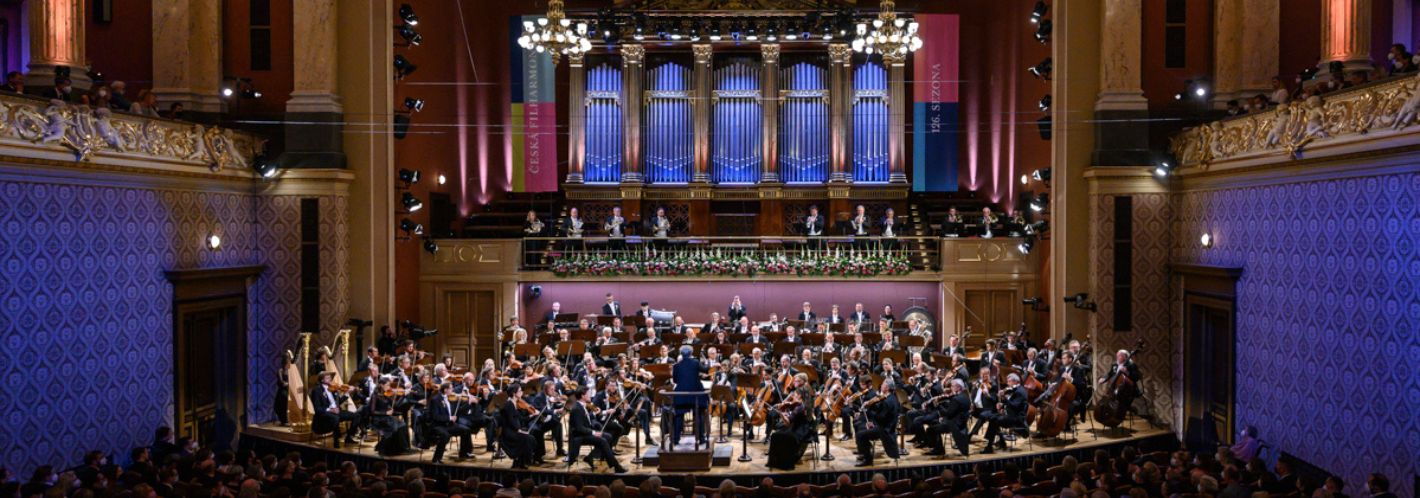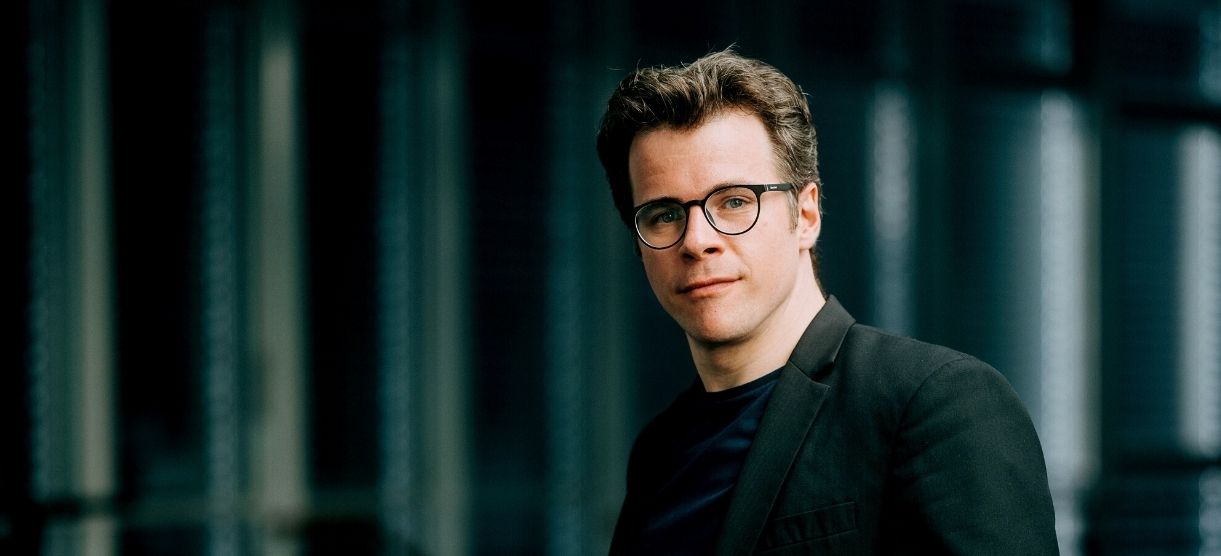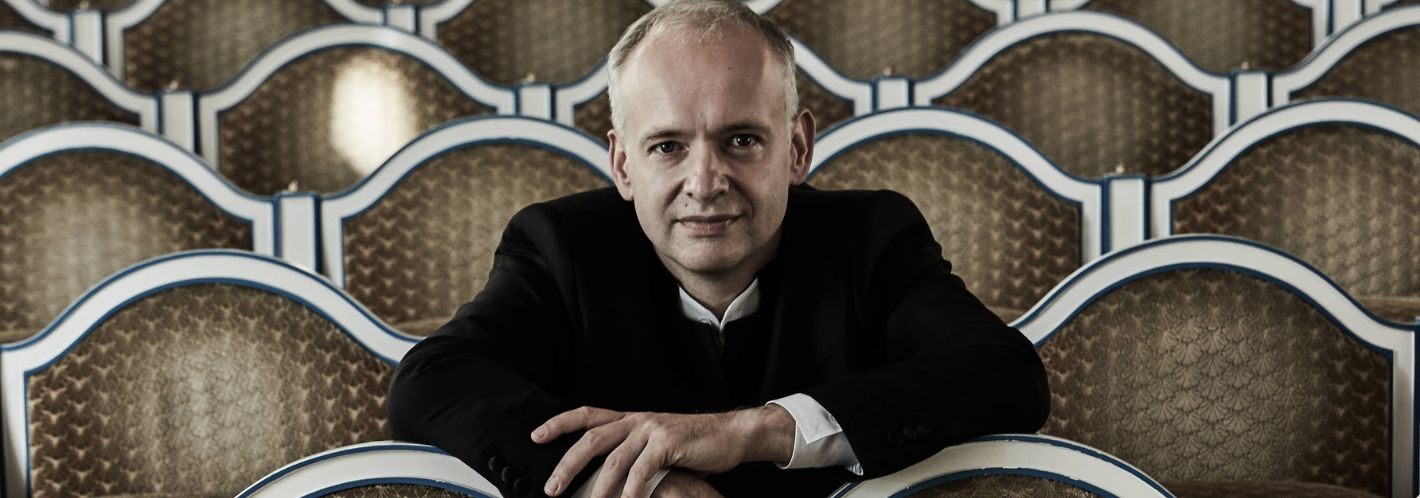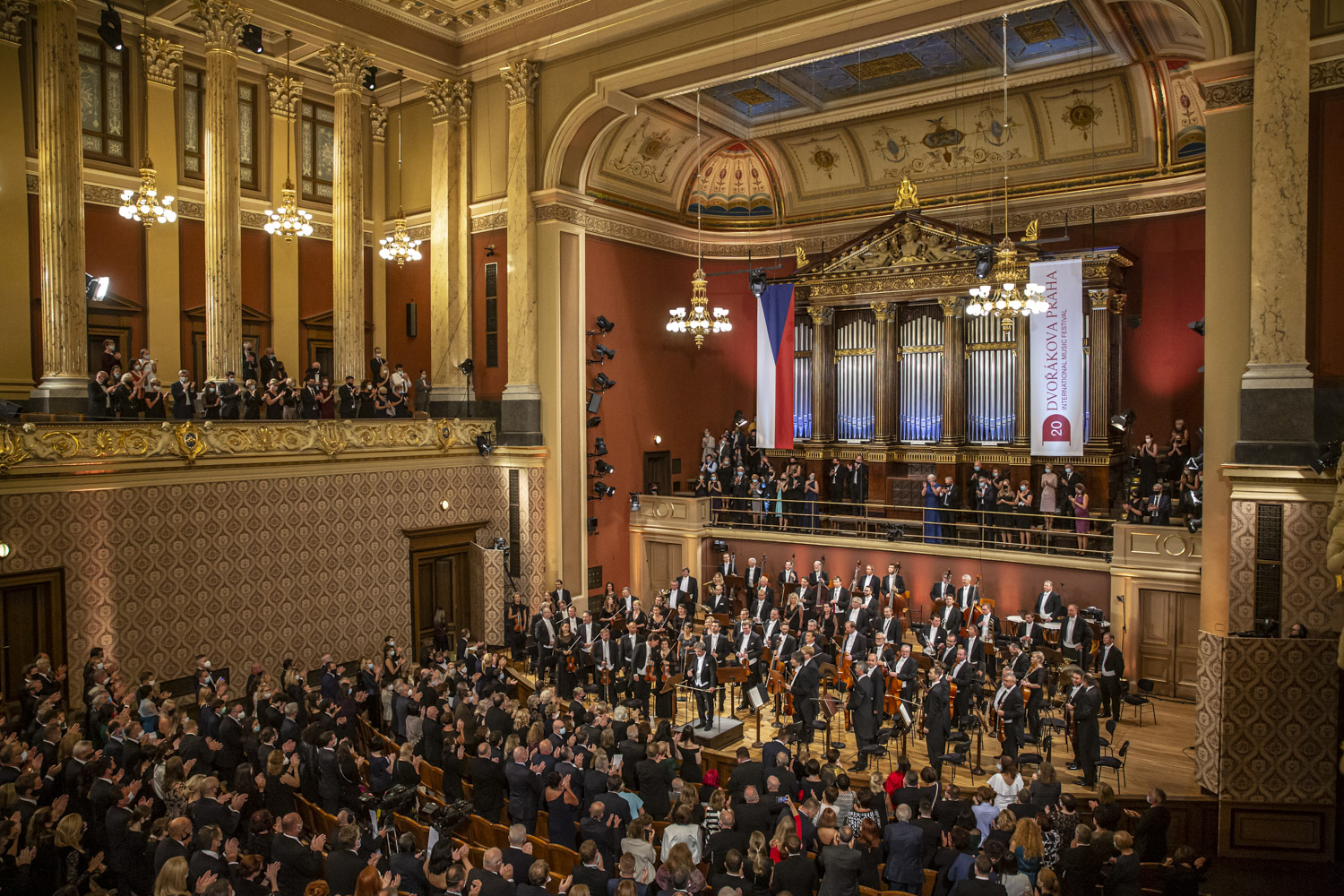
Ludwig van Beethoven: Piano Concerto No. 4 in G major, Op. 58
Josef Suk: Symphony No. 1 in E major, Op. 14
“A manly, finished, powerful work, highly intellectually distinctive in its material, assured in its layout and form, confident in its mastery of the symphonic apparatus” – that is how a period critic described the Symphony No. 1 in E Major by Josef Suk. The Czech Philharmonic will be performing the work of the barely twenty-five-year-old composer under the baton of Jakub Hrůša, and this will remind us of not only the young Suk’s maturity, but also, indirectly, the music to the fairy tale Radúz and Mahulena performed at last year’s festival. The two works were composed at the same time, and there is no denying the musical features they have in common. This year, the Dvořák Prague Festival is devoting increased attention to the music of Josef Suk not only because he was Dvořák’s son-in-law, but also because Suk was a direct successor to his father-in-law’s compositional legacy. Dvořák was the first composer to create the canon of the Czech Romantic symphony, and Suk followed him in this, adding to that canon a certain emotional tremulousness, existential uncertainty, and decadent sorrow of the fin de siècle. One can hardly miss the Mahlerian echoes in Suk’s symphonic music. Beethoven’s Piano Concerto No. 4 in G Major with the superb pianist Martina Kasíka shows us the image of music ninety-five years older than Suk’s symphony, which still stood firmly on the foundations erected by Beethoven, but which also took part in starting the process of calling those foundations into question.
Gramophone’s 2024 ‘Orchestra of the Year’, the Czech Philharmonic gave its first concert – an all-Dvořák programme conducted by the composer himself – in the famed Rudolfinum Hall on 4 January 1896. The Orchestra is acknowledged for its definitive interpretations of Czech composers and recognised for its special relationship with the music of Brahms, Tchaikovsky, and Mahler, who conducted the world première of his Symphony No. 7 with the Orchestra in 1908. It is currently recording the complete cycle of Mahler symphonies with Chief Conductor and Music Director Semyon Bychkov for Pentatone.
The Czech Philharmonic’s extraordinary and proud history reflects both its location at the very heart of Europe and the Czech Republic’s turbulent political history, for which Smetana’s Má vlast has become a potent symbol. 2024 was the Year of Czech Music, a major celebration launched on the bicentenary of Smetana’s birth and held across the Czech Republic every ten years. The Czech Philharmonic marked Smetana’s bicentenary with a series of concerts at the Smetana Litomyšl Festival, including a rare concert performance of his opera Libuše, conducted by Principal Guest Conductor Jakub Hrůša.
The contribution of the Czech Philharmonic and Semyon Bychkov to the Year of Czech Music was the Dvořák Festival, a combined performance of three overtures, instrumental concerts, and the last three symphonies of Antonín Dvořák, both in Prague and on tour in South Korea, Japan, Spain, Austria, Germany, Belgium, and France. The highlight of the Year of Czech Music performed by Semyon Bychkov and the Czech Philharmonic was a series of three concerts in New York's Carnegie Hall.
Alongside the Czech Philharmonic’s Youth Orchestra, Orchestral Academy, and Jiří Bělohlávek Prize for young musicians, a comprehensive education strategy engages with more than 400 schools, bringing students of all ages to the Rudolfinum – some travelling as long as four hours – to hear concerts and participate in workshops. An inspirational music and song programme led by singer Ida Kelarová for the extensive Romani communities within the Czech Republic and Slovakia has helped many socially excluded families to find a voice.
An early champion of the music of Martinů and Janáček, the works of Czech composers – both established and new – remain the lifeblood of the Orchestra. Instigated by Semyon Bychkov at the start of his tenure, nine Czech composers and five international composers – Detlev Glanert, Julian Anderson, Thomas Larcher, Bryce Dessner, and Thierry Escaich – were commissioned to write for the Orchestra.
source: Česká filharmonie

Jakub Hrůša is Chief Conductor of the Bamberg Symphony and Principal Guest Conductor of both the Czech Philharmonic and the Orchestra dell’Accademia Nazionale di Santa Cecilia. From autumn 2025, he will take up the post of Music Director at the Royal Opera at Covent Garden in London.
He frequently appears as a guest conductor with the world’s greatest orchestras, including the Berlin, Vienna, Munich and New York Philharmonics, the Bavarian Radio, NHK, Chicago and Boston Symphonies, the Leipzig Gewandhaus, Lucerne Festival, Royal Concertgebouw, Mahler Chamber and the Cleveland Orchestra, the Orchestre Philharmonique de Radio France, Dresden Staatskapelle, Orchestre de Paris, and Tonhalle Orchester Zürich.
He has led opera productions for the Vienna State Opera, the Royal Opera House, Opéra National de Paris, Zurich Opera, and the Glyndebourne Festival. In 2022, he made his debut at the Salzburg Festival with a new production of Káťa Kabanová.
For his recordings with the Bamberg Symphony, he received an ICMA for Hans Rott’s 1st Symphony in 2023, previously an ICMA for Bruckner’s 4th Symphony, as well as the Jahrespreis der Deutschen Schallplattenkritik for Mahler's 4th Symphony, as well as a BBC Music Magazine Award for Dvořák and Martinů Piano Concertos with Ivo Kahánek. In addition, he has received Gramophone and BBC Music Magazine Award nominations for Martinů Violin Concertos with Frank Peter Zimmermann.
Hrůša studied at Prague’s Academy of Performing Arts, where his teachers included Jiří Bělohlávek. He is President of the International Martinů Circle and The Dvořák Society. He was the inaugural recipient of the Sir Charles Mackerras Prize, and in 2020 was awarded the Antonín Dvořák Prize by the Czech Republic’s Academy of Classical Music, and – with the Bamberg Symphony – the Bavarian State Prize for Music. In 2023, Jakub Hrůša was awarded Honorary Membership to the Royal Academy of Music in London.
source: Bamberger Symphoniker

Martin Kasík is one of the most prominent figures on the Czech music scene. Both critics and audiences acclaim his creative and poetic approach to musical expression, which captures the mood of the moment, conveys a deep spiritual dimension, and reflects an exceptional richness and variability of emotions.
He studied at the Janáček Conservatory in Ostrava under Monika Tugendliebová and later at the Academy of Performing Arts in Prague (AMU) with Ivan Klánský. He broadened his musical horizons through masterclasses with Lazar Berman, Garrick Ohlsson, Christian Zacharias, and Paul Badura-Skoda.
Winning the 1998 Prague Spring Competition and the 1999 Young Concert Artists competition in New York opened him the doors to prestigious concert halls worldwide, including Carnegie Hall, Berlin Philharmonie, Wigmore Hall, Tonhalle Zürich, Gewandhaus Leipzig, Concertgebouw Amsterdam, De Doelen in Rotterdam, Finlandia Hall in Helsinki, L'Auditori de Barcelona, Suntory Hall in Tokyo, and the Kennedy Center in Washington, D.C.
He has performed under the baton of renowned conductors such as Pinchas Zukerman, Marin Alsop, Yakov Kreizberg, Ingo Metzmacher, Serge Baudo, Ken-Ichiro Kobayashi, Libor Pešek, Jakub Hrůša, and Tomáš Netopil. His collaborations include performances with the Chicago Symphony Orchestra, Minneapolis Symphony Orchestra, New York Chamber Philharmonic, DSO Berlin, Tonhalle-Orchester Zürich, Stuttgarter Philharmoniker, Rotterdam Symphony Orchestra, Helsinki Philharmonic, and Singapore Philharmonic. He regularly works with the Czech Philharmonic, and the Prague Symphony Orchestra FOK, with which he has toured Japan and the USA.
His recordings for Supraphon and Arco Diva have received top accolades in Gramophone, Repertoire, and Harmonie magazines.
source: Martin Kasík

The Rudolfinum is one of the most important Neo-Renaissance edifices in the Czech Republic. In its conception as a multi-purpose cultural centre it was quite unique in Europe at the time of its construction. Based on a joint design by two outstanding Czech architects, Josef Zítek and Josef Schultz, a magnificent building was erected serving for concerts, as a gallery, and as a museum. The grand opening on 7 February 1885 was attended by Crown Prince Rudolph of Austria, in whose honour the structure was named. In 1896 the very first concert of the Czech Philharmonic Orchestra took place in the Rudolfinum's main concert hall, under the baton of the composer Antonín Dvořák whose name was later bestowed on the hall.
